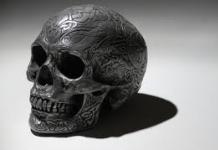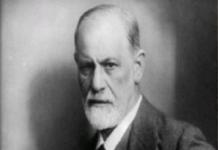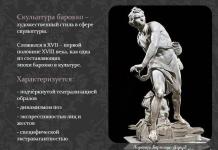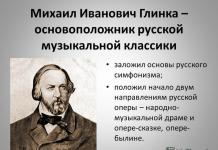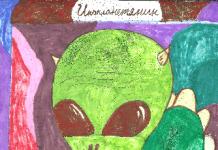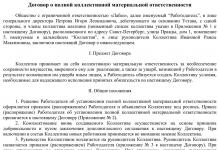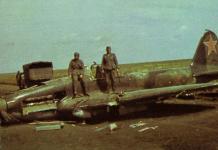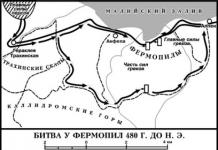This title - Fahrenheit 451 - carries a certain aura of mystery, and that is why many are so attracted to this book. 451 degrees Fahrenheit is "the temperature at which paper catches fire and burns." Before reading the plot of this book, make an association with another istic and numerical name, for example, “Nineteen Eighty-Four.” Both novels are about an oppressive society ruled by fear and censorship, where the characters have their last vestiges of hope and freedom. Anyway, let's do a quick analysis of Fahrenheit 451.
The author of the novel "Fahrenheit 451" is Ray Bradbury. From the very first page, a quote from Spanish Nobel Prize winner Juan Ramon Jimenez strikes: “Si os dan papel pautado, escribid por el otro lado” (“If they give you lined paper, write across it”). The author seems to be immediately trying to show with this quote his attitude towards social pressure, norms, oppression and any other type of violation of our freedom, and to encourage us to resist it.
The main character of "Fahrenheit 451"
The novel centers on Guy Montag, a thirty-year-old fireman in the twenty-fourth century (the novel was written in the early 1950s). As a fireman, Guy Montag is responsible for destroying not only the books he finds, but also the houses in which he finds them. Books are not read in this age; they should be destroyed without question. While analyzing Fahrenheit 451, let's dwell a little on this man. Guy Montag lives in a world where the past has been destroyed by kerosene hoses and government brainwashing techniques. In a few short days, this man transforms from a narrow-minded and prejudiced conformist into a dynamic man dedicated to social change and to living by saving books rather than destroying them.
The author of "Fahrenheit 451" is Ray Bradbury. And the book was written to show the evil of censorship. Ray Bradbury wrote it because he couldn't stand the censorship around him, he wanted to speak out against it in his own way. Books have become illegal because they allow people to think and form their own opinions. And if this happens, the state will lose control over the people.
Books are just one of many other things that contain ideas and feed our brains, giving us an extra push to think. Books hold knowledge, and Bradbury proves that knowledge is power. Citizens did not have books, which means they have no knowledge, and therefore no power. A person without knowledge is nothing.
Problems of the novel “Fahrenheit 451”
Ray Bradbury's novel Fahrenheit 451 is a thematically expanded version of the short story "The Fireman", published in Galaxy Science Fiction in February 1951, and presents a whole range of problems that, in the author's opinion, may eventually be overcome , humanity will have to face. The novel's title comes from the chemical property of paper to spontaneously ignite at a temperature of 451 degrees Fahrenheit (233 degrees Celsius).
In depicting America in the twenty-first century, Bradbury models a picture of the future based on current trends. The writer in his novel creates an anti-model using the symbolism of his fantasies. He reflects on the fate of earthly civilization, on the future of America, with its unconventionally formed mentality, with its national flavor. The USA depicted in the book is, in fact, the same United States of the twentieth century, with its consumer culture, with intrusive advertising in the subway, with “soap operas” and the artificially cozy world of cottages. Only everything is taken to the extreme, to that very notorious “absurdity”: firefighters do not put out fires, but burn banned books; people who prefer to walk rather than drive cars are mistaken for crazy; It is forbidden to even admire nature. The slightest deviation from the generally accepted way of life causes repression [Lyubimova 2001].
The development of science and the rapid growth of technology have changed people's thinking. Technological progress has made human life much easier, while at the same time greatly suppressing his instinct of self-preservation. Herd feelings help people survive in a new society that is becoming not only technocratic, but also totalitarian, and above all this affects the spiritual aspects of human life. The norm of behavior becomes a consumer existence, in which the only food for the mind is provided by entertainment, reality is replaced by primitive television illusions [Zverev 1989].
The world described by Bradbury did not become like this overnight. In the twentieth century, radio, television, video and audio systems, a computer network, etc. were added to such media and communications as newspapers, mail, telegraph, telephone. The volume of information absorbed by humans has increased significantly, which has led to information overload. Often carrying a destructive, aggressive beginning, and sometimes having a contradictory, conflicting nature, information began to have a negative impact on the psyche and health of people. There was a need to create methods of protection against such influence. Ray Bradbury in his novel presents one of the options for solving this problem: repressions against literature did not begin by themselves - they were a forced measure. When at some point it became clear that the information sphere needed to be reduced, the question arose: what area? It is no longer possible to do without means of communication, and television and advertising have long become an integral part of people’s lives, and too many people are interested in them from a practical point of view. The solution was found in getting rid of books [Chalikova 1991].
An attempt to argue for this decision is made by the colleague and opponent of the main character Guy Montag, Firemaster Beatty. The reason why books fade into the background, he sees, is the extensive development of culture, its expansion with inevitable devaluation: “Once everything has become widespread, it has become simpler... Once upon a time, only a few read a book - here, there, in different places . Therefore, the books could be different. The world was spacious. But when the world became crowded with eyes, elbows, and mouths, when the population doubled, tripled, quadrupled, the content of films, radio programs, magazines, and books dropped to a certain standard. A kind of universal chewing gum... Books are shrinking in volume. Abridged edition. Retelling. Extract... From the nursery straight to college, and then back to the nursery... The duration of education in schools is shortened, discipline is falling, philosophy, history, languages have been abolished. Less and less time is devoted to the English language and spelling, and finally these subjects are completely abandoned...” [Bradbury 2008, 114].
So, why have books if you have a TV, argues Beatty. And reading does more harm than watching TV shows - books disturb you and make you think. They are dangerous! People who read books become “intellectuals”, stand out from the rest of the public, and claim something. “...A book is a loaded gun in a neighbor's house,” Beatty declares. - How do we know who will become the next target for a well-read person tomorrow? Maybe I am?".
What should I do? It’s very simple: take it and ban it, burn it. Firefighters, Beatty explains, “have been made the guardians of our peace. In them, as if in a focus, all our completely understandable and legitimate fear of being inferior to others was concentrated. They became our official censors, judges and executioners... ... People of color do not like the book “Little Black Sambo”. Burn it. Someone wrote a book about how smoking predisposes you to lung cancer. Tobacco manufacturers are in panic. Burn this book. We need serenity, Montag, calmness” [Bradbury 2008, 124].
The novel “Fahrenheit 451” is a subtle and skillful criticism of consumer society, fear of its degradation, and a warning to the average person. The consumer society described by Bradbury does not burn books at the stake, it burns itself - its history, its culture. The value of the novel lies in that terrible picture of the future, which may well become true. The American ideal of a carefree life, dreams of universal equality, the absence of unnecessary anxious thoughts - this limit of society’s dreams can turn into a nightmare if the author’s warnings are not heeded [Novikov 1989].
Both novels considered in the study were written at approximately the same time, which reduces to zero the likelihood of using one novel when writing the other, but, nevertheless, the works have many common features that allow these works to be classified as a dystopian genre.
1) In both works, the action takes place in countries where there is more or less pronounced violence against the individual and a restriction of his freedoms. The degree of personal lack of freedom in the works varies. Orwell describes a typically totalitarian society with all its attributes, such as strict regulated norms of behavior, poor economic development, the figure of the leader in the form of an “elder brother,” and total surveillance of every person. Bradbury brings to our attention a seemingly completely different society. At first glance, complete well-being reigns in Bradbury's world: there is no hunger, obvious violence, moreover, there is no visible power, there are no pictures of leaders, no broadcast of fiery speeches, or any other attributes of totalitarianism, but the well-being of this world is only external [Shishkin 1990].
2) Following the canons of the genre, the protagonists of the novels are opposed to society; their thinking, different from the general mass, is forced to involve them in the struggle against this mass. Winston Smith's struggle ends in defeat, since the world described by Orwell is so stable and perfect in its totalitarianism that the heroes of the opposition have no chance. Ray Bradbury was a little more loyal to his hero. The world of Fahrenheit 451 is less violent than the world presented by Orwell. Bradbury optimistically admits the possibility of resistance; consumer society is opposed to the guardians of cultural heritage driven into the forests, people-books, to whom the main character of the novel, Guy Montag, subsequently goes [Shishkin 1993].
3) The role of women in both novels is similar. The way of thinking of the main character is compared with the way of thinking of people absolutely loyal to society, and oddly enough, for both authors, the wives of the heroes (in the case of Orwell, the ex-wife) act as such an opposite. Both Winston Smith and Guy Montag suffered from the absolute conformism of such close (or theoretically should be close) people. It is also similar for both authors that the catalyst that rebelled both heroes against the regime was a girl: Bradbury’s Clarissa and Orwell’s Julia.
4) The social status of the main characters of both novels is also noteworthy; both of them have some position in society and have access to a certain set of benefits. Therefore, it cannot be said that they had absolutely nothing to lose. However, internal freedom on the other side of the scale outweighs in both works.
5) The ways in which the authorities influence the minds of the population are extremely similar; In both novels, the most important way to influence a person is television, broadcasting a huge number of patriotic programs for Orwell or completely meaningless soap operas for Bradbury.
6) The main driving force that forced the heroes to put everything they had, and even their lives, on the line, were two things: love and literature. The movement towards knowledge motivated these people. It is impossible not to pay attention to the fact that the profession of both was the destruction of information: both burning books for Bradbury and working on correcting history for Orwell.
Thus, having discovered so many common features in the works of these rather different writers, we can conclude that the views of anti-utopians on the oppression of moral freedoms are very similar, and their views on those forces that must resist evil are also similar: love, loyalty, thirst for knowledge and independence of thinking. In the authors’ contemporary bourgeois society, they already saw elements of “personal programming” [Lazarenko 1991]. The moral position of both writers can be illustrated by the statement of R. Emerson: “The true indicator of civilization is not the level of wealth and education, not the size of cities, not the abundance of harvests, but the appearance of a person raised by a country.”
This novel is considered one of his most famous works. The novel was published in 1953. The meaning of the book is already in the title: 451 degrees Fahrenheit is the burning temperature of paper. The dystopia tells about the near future of America.
In contact with
According to the author, in the future they will stop reading books, and all production will be aimed only at marketing, selling and “warming” humanity. Even in such an unsightly future, Ray Bradbury was able to dilute the darkness with rays of light in the form of human love and thirst for knowledge.
Ray Bradbury - master of science fiction
This is what this writer is often called. And it’s not surprising: Bradbury wrote most of his stories in the fantasy genre; he laid down many traditions of this genre. The author wrote 11 novels, 21 plays and about 400 short stories.
 Bradbury wrote five works in the late 40s, thanks to which, as he said, “451 degrees Fahrenheit” flared up. “Pedestrian”, “Bonfire”, “Radiant Phoenix”, “Esher II”, “Exiles”.
Bradbury wrote five works in the late 40s, thanks to which, as he said, “451 degrees Fahrenheit” flared up. “Pedestrian”, “Bonfire”, “Radiant Phoenix”, “Esher II”, “Exiles”.
These stories contained observations on the topics of censorship, forbidden reading, the power of personality, and the salvation of art. Later, in 1949, Bradbury, having linked these stories together, wrote the book “Fireman”. Then the editor of the publishing house considered that the book was not sufficiently developed and returned the manuscript for revision.
After a year of painstaking work, Bradbury completed the novel in the form in which we know it now, and called it "451 degrees Fahrenheit". Wikipedia reports that the novel was published in a circulation of 255 thousand books; now you can easily find countless online publications on the Internet. Bradbury became famous, and a book about a dystopian future was included in almost all school literature courses.
According to the plot the main character Guy Montag works as a fireman. In this world they do not put out the fire, but, on the contrary, they start it. Firefighters burn books and their owners because reading is prohibited in the future. The government is doing everything to arrange a massive dullness of humanity - this makes it easier to control people. Guy Montag spent ten years burning books and people who were found with forbidden goods. At the same time, he did not think about whether it was good or bad - until a certain moment.
One day Montag meets a young, dreamy girl named Clarissa McLelland. A fleeting meeting knocks Montag out of his usual rut. Clarissa immediately warns that she is crazy, but this does not push Montag away. To the question “Are you happy?” he doesn't know the answer. This question turns his life upside down.
 At home, Montega's wife poisoned herself with pills. She didn’t try to commit suicide, she just took sleeping pills one after another and didn’t notice how she was poisoned. Montag understands that everything in his life happens mechanically, even marriage has turned into a meaningless routine. His wife dreams of a TV wall, the fourth one in their house. This is where her dreams end. She doesn’t want children and is increasingly immersed in the world of series and TV shows.
At home, Montega's wife poisoned herself with pills. She didn’t try to commit suicide, she just took sleeping pills one after another and didn’t notice how she was poisoned. Montag understands that everything in his life happens mechanically, even marriage has turned into a meaningless routine. His wife dreams of a TV wall, the fourth one in their house. This is where her dreams end. She doesn’t want children and is increasingly immersed in the world of series and TV shows.
Montag, thanks to short meetings with Clarissa, breaks out of routine and can no longer burn books with the same impartiality. At the next call, the mistress of the house refuses to leave the house, and she is burned along with her books. Guy Montag does not understand why she died, and the next day he does not go to work - he feels sick and broken. He immediately finds out that Clarissa is no longer there - she was hit by a car.
The chief, Fire Chief Beatty, comes to see the sick fireman.. Judging by the description, he is not a stupid person, but he holds radical views: Beatty reads instructions and talks about consumer society. Books are getting smaller, publications are shrinking. Everything is done so that a person can absorb information. Classic books are remade into a 15-minute show. Beatty inspires that people should be the same, that in the modern world there is no place for individuals. Only then will everyone be happy. A book in such a world is a weapon that absorbs the human mind.
Montag listens, but can no longer stop. Clarissa and the woman who burned in the fire do not let him go. Guy Montag brought books home. When he invites his wife to read it together, she refuses in horror. Trying to find the other owners of the books, Montag comes across another suspect: Professor Faber. Firefighters have been watching him for a long time, and at first Faber speaks to Montag with caution. Then he still talks about his invention: printing. Now any books can be reproduced, albeit in small quantities. Faber gives them a droplet receiver, thanks to which they can communicate at any time. In addition, the receiver will help Faber learn about the work of firefighters from the inside.
When the threat of a third war looms over the country, Faber hopes that after it people will remember the books and decide to return to their roots. Montag is waging his own personal struggle: he shows books not only to his wife, but also to her friends. They can't stand it and report him. While leaving for another call, Montag is surprised to drive up to his own house. Beatty's boss forces him to destroy the books himself. At this point, Beatty discovers a transmitter in Montag's ear. Guy, trying to keep the secret, aims a flamethrower at Beatty and two comrades, and then disappears. A search for him is announced throughout the country, calling him a dangerous criminal.
 At the same moment the war begins. The Mechanical Dog, a cold robot killer, is sent after Montag. Montag manages to escape, but the Mechanical Dog kills a random passerby instead. He is passed off as dead Guy to show that no one can get away with it.
At the same moment the war begins. The Mechanical Dog, a cold robot killer, is sent after Montag. Montag manages to escape, but the Mechanical Dog kills a random passerby instead. He is passed off as dead Guy to show that no one can get away with it.
According to Faber's promptings, the hero leaves the city and finds a secret society. It turned out that all this time there were people who kept book classics - in their heads. They memorized entire books and then spread the knowledge by reproducing the books directly from their heads. The whole society is looking forward to the end of the war. They believe that when bombs are dropped on the country, humanity will return to where it started. Then people will need books again.
Heroes

Analysis of the novel
The structure and plot of the novel are based on oppositions: light and darkness, vanity and calm.
Sincere and lively Clarissa is contrasted with the dry, static Mildred. The main character's wife even has a face with frozen features. Clarisse's veranda, illuminated by warm light, is completely different from Montag's cold bedroom.

The title of the second chapter is “Peso and Sieve” hints at the impossibility of filling life with meaning. When Montag tries to read the Bible in the subway in this chapter, he cannot make out a word - his entire consciousness is filled with loud music.
At the end of the book, we finally see the bright side of the flame: these are the morning rays of the sun, illuminating a line of people. The educators are led, symbolically, by Montag, who recently burned books.
Bradbury's dystopia was not the first of its kind, but, nevertheless, it was able to become a kind of symbol of this genre. It is one of the three most popular dystopias, and any interlocutor who is interested in science fiction will name it among the works he has read. But the book’s popularity did not bring it widespread understanding: few readers delve into the meaning of the novel, unlike the Literaguru team. We will try to understand this text together with you.
About the history of the creation of the novel “Fahrenheit 451,” Ray Bradbury highlights an entire chapter, “Ten-Cent Investments in Fahrenheit 451,” in his work “Zen in the Art of Writing.” The writer is surprised by the enchanting success, calling the work a “penny novel” due to the fact that Bradbury invested 8 dollars and eighty cents when working on the first version of the text in the form of a story called “The Fireman”.
Rereading his work in subsequent years, he became convinced that the characters played new pictures in his head when he “asked them questions.” They are perceived by the writer as beings born in his mind, but he is not able to control their actions. This is how Clarissa disappeared from the pages, having revived the main character Montag’s interest in the contents of the books with her crazy conversations.
Ray Bradbury writes his works with complete passion, forcing himself to work every morning. “In order to learn to write, you must write.” Thus, re-reading the novel after a long time from its publication, he realized that the name of the main character (Montag) is identical to the name of a paper manufacturing company, while Faber, who according to the plot of the book is his ideological supporter, is a brand of a pencil manufacturer.
The novel itself is called Fahrenheit 451. Which is approximately 232 degrees Celsius and marks the temperature at which paper begins to burn. The name is given due to the fact that Montag works as a fireman, on the contrary, that is, he burns books.
The essence
We are just the covers of books, protecting them from damage and dust - nothing more.
The society described in Ray Bradbury's dystopia receives information from the screens of its televisions, which fill all the walls of houses, from the noise of radios, and other distributors of digestible and necessary propaganda for the state. But books that make you think about everything that happens around people and within society are banned in this world. Where they are burned, there is no place for riots and discontent. A society incapable of thinking is easily controlled by the government, which is why, under a totalitarian regime, literature is prohibited by law, making it subject to immediate destruction. But our hero, who, as part of his duty, cleanses his little world with fire, suddenly becomes interested in the forbidden fruit and begins to contribute to the concealment of books. But everything secret becomes the property of vigilant law enforcement officers.
People who have forgotten how to communicate with each other are only able to perceive the information that is presented, without the need to comprehend it. This is exactly the future that awaits us if we continue to exist as a rapidly evolving consumer society.
Genre, direction
The novel is written in the fantasy genre, presenting us with the world of the near future. Dystopia, which should be understood as fiction, which necessarily includes the exposure of negative trends in certain areas of society and the state. The author exposes the vices, showing an exaggerated picture of the future to which this state of affairs will inevitably lead. We wrote in detail and less officially about this genre
Along with this work stands the utopian world of George Orwell “1984” (), as well as the dystopia of Aldous Huxley “Brave New World” ().
The main characters and their characteristics
- Guy Montag (Montag in some translations)- the main character who works at a fire station of the future. His main task is to respond to emergency calls in cases where books are found in houses to be burned using a special device - a hose. This man is a child of his era; he does not think about the essence of his mission until he comes face to face with several individuals who shake his confidence in the correctness of the political system. He is consistently disappointed in his wife, who is indifferent to everything except her favorite screens, in his service, where he sees only cruelty and blind desires to please his superiors, in his society, where he no longer feels organic. From an apathetic slave of routine, he turns into a conscious and active person, capable of saving age-old wisdom from the hands of barbarians.
- Clarissa McLellan- a young girl who appeared on the first pages of the novel, who gave impetus to the hero’s interest in books and what is contained in them. Her family was considered abnormal, constantly being suspected of reading. In the evenings, their windows were lit, and one could watch how all the relatives communicated with each other, making loud sounds, which caused terrible bewilderment and irritation among all the neighbors in the area. In the film adaptation of the novel, the heroine was given more time than in the text. She disappears without a trace, and Montag can only wonder where she went. Most likely, she went into the forests where the keepers of book knowledge were hiding.
- Beatty Brunsmeister- the head of the fire department, the first to suspect the protagonist’s interest in the contents of the books. Author of the famous quote “Keeping books is not a crime. It’s a crime to read them.” Sensing Guy's desire to touch the forbidden, the character teaches his subordinate a lesson, but this does not lead to the desired result. His conversations with Guy are the basis of the plot, because in them the author sets out his ideas.
- Mildred- an apathetic, insensitive, indifferent wife of the protagonist, who is a complete reflection of the society described by Ray Bradbury. She sits all day on the sofa in a room with screens, hardly speaks, and reacts with caution to books found in her husband’s hands. She betrays him without a twinge of conscience, announcing the discovery.
- Faber- a friend and like-minded person of Montag, a professor who failed to prevent the adoption of a law banning books. He is initially wary of Guy. When he realizes that the main character is trying to learn the inner world of books, the former English teacher strives to help his interlocutor.
- The main theme of the novel is the role of books in human life.. Through utopia, the writer demonstrates a world that can be reality if one refuses to read literature. Books contain the experience of our ancestors, which people should adopt to move forward. Readers ask questions that are unfamiliar to mass consumer society. Therefore, it is dependent on the government and is very vulnerable. For people who are not able to think independently, information is presented from the right angle, which gives the state all the levers for complete control.
- Family. The author proves the need for communication and promotion of common family interests. Many people become isolated in themselves and their gadgets, ignoring the importance of family ties. This is a direct path to alienation from family and friends, which promises a person loneliness and insecurity. After all, who, if not relatives, can help in difficult times, support and understand? Alas, the hero realized the destructive role of screens in his personal life late, so he lost his beloved woman.
- Loyalty and betrayal. Those whom Guy trusted betrayed him, obeying what the authorities told them. When propaganda becomes higher than morality, higher than feelings and affections, the personality is destroyed, and in its place appears a submissive and apathetic slave, incapable of emotions and thoughts.
- Theme of technical progress. We must understand that technology is a means, not the goal of our existence. Society cannot be allowed to value gadgets and virtual reality more than people. In addition, progress should not displace the achievements of past eras; they can coexist with each other, only then will all generations achieve harmony of mutual understanding, which is a guarantee of mutually beneficial exchange of experience.
- Conflict between society and individual. Guy Montag comes into conflict with society by reading books instead of destroying them. As a fireman called to destroy them, he becomes a double agent - on missions, instead of destroying literature, he takes some of them home. The hero stands out among the people with whom he is forced to share his life. Like the black sheep Chatsky, he is misunderstood and expelled, considered a criminal for his desire to learn new things and think, while society has forgotten how to think and exist independently.
- Propaganda and manipulation of society through the media. Television fills all the problems that arose after the ban on literature. The media is becoming an excellent way of manipulation; they have “zombified” the population, remaining the only channel for obtaining any information. However, everything that is shown in screen rooms is presented from an advantageous angle, and the chances of noticing “something wrong” in the information presented are reduced to zero due to the inability to think.
- The problem of lack of spirituality it is also born due to the lack of books and the abundance of “information fast food” of television screens, which, as a monopoly, participate in the education of the population. Moral values, as a result, are replaced by consumer values.
- The problem of historical memory. Literature, which has collected all the discoveries and inventions, everything meaningful and thought out over centuries, is the memory of generations. This is a collection of archives of everything created by man since the advent of writing. In a society where books are banned, the possibility of preserving all this is lost, which becomes the key to complete regression for society.
- The problem of the loss of traditions and values of past eras. Technological progress that replaces the crisp book in your hand can be beneficial or harmful, depending on how you use this find. But without the alternative that the same literature provides, society cannot judge whether it is managing its capabilities in the right way. Despite the improvement in the quality of the displayed image and the increase in screen diagonals, technology can remain only a beautiful cover for the apotheosis of emptiness.
Themes
Issues
Meaning
Ray Bradbury's idea is this: without reliance on the experience of past generations, on free and honest art, the future, which is described in the novel Fahrenheit 451, is inevitable. People are increasingly choosing the latter when choosing between a book and an entertaining video; the level of education of the population is falling, due to which mass degradation occurs and an inability to think develops, leading to stagnation in every area of human activity. Instead of finding out for yourself, and at the same time checking, the information that is so conveniently and simply presented on the screens, the viewer is content with a superficial picture of the world, which is carefully packed into 5 minutes of airtime. And if the same viewer himself had found, for example, versatile facts about what was being served to him in a propaganda sauce, then his worldview would have been more objective and richer. In art, which is only one of the sources of information and guardians of culture, those grains of truth have been preserved that could shed light on the true state of affairs. Unfortunately, the author’s gloomy predictions come true in certain countries where the literacy rate is low, but the indicators of bigotry, poverty and aggression are off the charts. People kill each other without even thinking about why this is necessary, if initially all religions had a peaceful message, and all statesmen should lead the people to prosperity.
The writer’s idea is also clear that a person, like Guy Montag, should not be afraid to stand out from the crowd, even if the whole society opposes him. The desire to think and learn something new is a natural need, and in the age of information technology it is completely necessary.
Criticism
Due to its highly social orientation, the novel did not immediately see the light of day. Before this, the novel went through many censorship changes. Thus, he lost numerous swear words before releasing the book for the school publication.
In 1980, the writer noticed that the publishing house was releasing his book in an abridged form, excluding scenes that were unacceptable to them. The writer managed to stop this practice after demanding publication in full.
In Soviet criticism, the range of reviews is varied: from sharply negative reviews to praise and even flattery.
Interesting? Save it on your wall!R. Bradbury's characters are loners, rushing into a hopeless battle, striving not so much to win as to assert their human dignity.
A. Meyer
Love for a person, hatred for everything hostile to him - for what prevents a person from being worthy of this proud title - such is the driving force of R. Bradbury's creativity. This inseparable “love-hate” helped him create, perhaps, the most powerful of the endless number of warning novels written in our century - “Fahrenheit 451”, a book that brought the author worldwide fame.
The world looked with horror at the reflections of the flames from burning books, generated by the ominous firefighters of Bradbury, who moved the action of his novel to a time when books began to be burned for making people think. The profession of the main character of the novel, Guy Montag, is a fireman, but a fireman armed not with a water cannon, but with a flamethrower with kerosene. It does not extinguish, but rather ignites fires. Indeed, this has happened more than once: what is designed to save people, help them, make life happier, suddenly turns against them, begins to put pressure, oppress, threaten, and finally kill. Something similar is happening now with Western culture, which is moving - sometimes subtly - into counterculture, into mass culture, into kitsch, into something that has nothing in common with genuine culture, although it often continues to dress up in the same clothes. But the firefighters in the novel are also sure that the meaning of their profession is always to rush to the fire alarm and burn seditious volumes along with the houses, and even the owners.
The society Bradbury depicts not only kills books and people, physically, so to speak. First of all, it kills souls... How many of them are like Mildred, creatures with a humanoid shell, from which, however, everything human has been shaken out. When the remnants of the soul, the glimpses of conscience, are asked for, Mildred, without even clearly realizing what she is doing, tries to commit suicide, and her friends, the same unfortunate victims of mass culture, cry after hearing a few lines of poetry. But this is an impulse for a moment - their process of spiritual decay has gone too far. They are essentially dead.
Is there really anything human left in a gang of cackling teenagers in cars who, seeing a lone passerby, immediately decide: “Let’s knock him over!” They're having fun. Just as their “teachers” who burned books taught them...
But Bradbury would not be a progressive writer if he limited himself to only warnings and frightening scenes. In all his works there are always heroes who oppose. The remarkable anti-conformist words of Juan Ramos Jimenez: “If they give you lined paper, write across it,” which became the epigraph to the novel, can be put as an epigraph to the entire work of the American science fiction writer. Not only in the heart of the protagonist of the novel "Fahrenheit 451", but also in the reader, the episode with the woman who set herself on fire along with the library will resonate with acute pain. It is not for nothing that the novel quotes the words of a sixteenth-century heretic burned alive by the Inquisition: “Today we will light in England such a candle that, I believe, they will never extinguish.”
Young Clarissa, who stirred Montag’s soul, also writes across, a girl who is interested not in how something is done, but for what and why. Now the hereditary fireman Montag hides half-burnt volumes in his bosom, like a believer hides perishing shrines. And when Montag flees the city, he is met by tramps around the fires - intellectuals, writers, teachers. Each of them learned by heart some great creation of the past. They believe that the time will come when all the treasures of human thought, which the evil forces have so carefully tried to burn to ashes, will be reborn again, preserved by this living library. A society that burns books cannot and has no moral right to exist, and the author sentences it to capital punishment. Atomic bombers roar past, and an all-consuming flame, even more cruel than the one that destroyed the books, licks the gloomy city from the face of the Earth. Montag executes Firemaster Beatty, the cynical ideologist of the Burnt Book Society, with a fiery death. To justify his view of the future, the writer talks about potential threats awaiting us.
In the novel “Fahrenheit 451” I found many dark, soul-shattering pictures, but surprisingly: I closed it without a heavy aftertaste; on the contrary, there is something bright, even sunny in it, reminiscent of the smile of a red-haired, curly-haired, freckled boy. This happened because the author’s optimism breaks through the lines, his faith in the ultimate triumph of reason, in the fact that all the wonders and wonders created by man will be passed on - from generation to generation, and so on endlessly. In his novel, Bradbury convinces us that humanity can cope with any difficulties, that it will not only survive, but can also become happy. And I really want to believe it!




